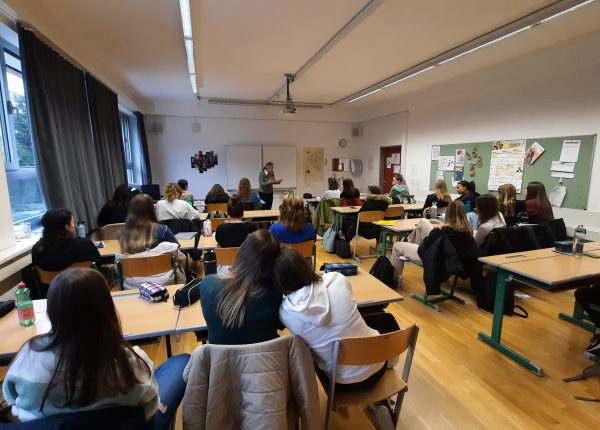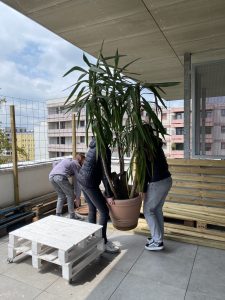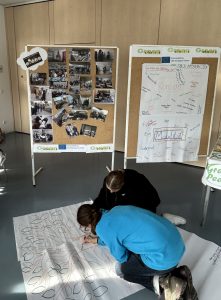Protagonist educators engage active students in ecological and inclusive project

Find out about two projects that bring Greenclusive’s mission of ecology and inclusion to protagonists of educational transformation. Students and teachers work together to go beyond the classroom and take concrete action in their communities.
Training ecologically aware teachers
📍Linz, Austria
For an ecological transformation, building sustainable awareness can happen from an early age. In Linz, under the guidance of dedicated teacher Claudia Troia, young people who are preparing to become kindergarten teachers were trained and equipped with a set of skills to educate a new generation. The Greenclusive project served as a platform for nurturing eco-conscious leaders. While participating in workshops on recycling and responsible consumption to brainstorming sessions on eco-entrepreneurship, participants were equipped with the tools to enact tangible change.
An important step of the experience was the connection between knowledge and concrete action through the transformation of the school’s roof terrace into a green space. Marking the start of the greening of the school building, outdoor lessons will take place there and free time will be spent outside. Besides that, this is also another contribution towards the climate-friendly city of Linz. Reflecting on the experience, students expressed gratitude for the opportunity to delve into sustainability topics in a hands-on manner. Many noted a newfound sense of empowerment and readiness to take on the challenges of building a more sustainable world.


Engaging students to be ecologically active citizens
📍Pescara, Italy
The Pescara Summer Campus took place in San Donato neighborhood, a peripheral area southeast of Pescara. With approximately 15,000 inhabitants, the area suffers from waste management issues, limited cultural opportunities, air pollution and insufficient green areas. To address these issues, the Greenclusive project offered various activities designed to engage and educate the youth on pressing ecological issues, ranging from practical endeavors like park cleaning to thought-provoking seminars on the 2030 Agenda. Through these engagements, participants not only imbibed valuable skills in environmental planning but also gained insights into active citizenship and community building. The workshops, discussions, and collaborative projects served as catalysts for holistic growth, fostering a sense of responsibility towards both society and the environment.
Students from Liceo Classico D’Annunzio, a school in Pescara, were the majority among the youth, guided by their professor, Andrea Conte. The campus proposal was encouraged in the school environment, serving as an open window for the students to explore educational experiences beyond traditional classrooms. The impact of these endeavors was palpable, as evidenced by a song composed by one of the youth participant Laura Ubaldi take became the project soundtrack. The youth emerged not just as beneficiaries but as active agents of change, their newfound awareness translating into tangible actions within their community. The sense of belonging and accomplishment resonated deeply, signaling a shift towards a more inclusive and sustainable future for Pescara.
Call to action
The impact of the Greenclusive project extended beyond individual participants, resonating throughout the communities and beyond. Collaboration emerges as a central theme, with stakeholders encouraged to join forces in pursuit of common goals. By fostering partnerships between the local community, Greenclusive participants, and policymakers, the project envisions a collaborative approach to sustainability that transcends boundaries and fosters meaningful change.
As the project unfolds, there is a clear call to action for policymakers at local and European levels. Urging for reforms in the education system to allow for more project-based learning, participants emphasize the need for time and space to explore sustainability initiatives fully.
In essence, the Greenclusive project, a winning partnership of 7 organizations in 6 European countries, co-funded by the European Commission, serves as a testament to the transformative power of education and community engagement in advancing environmental sustainability. As participants continue to champion these principles, their collective efforts promise to shape a greener, more inclusive future for generations to come.


